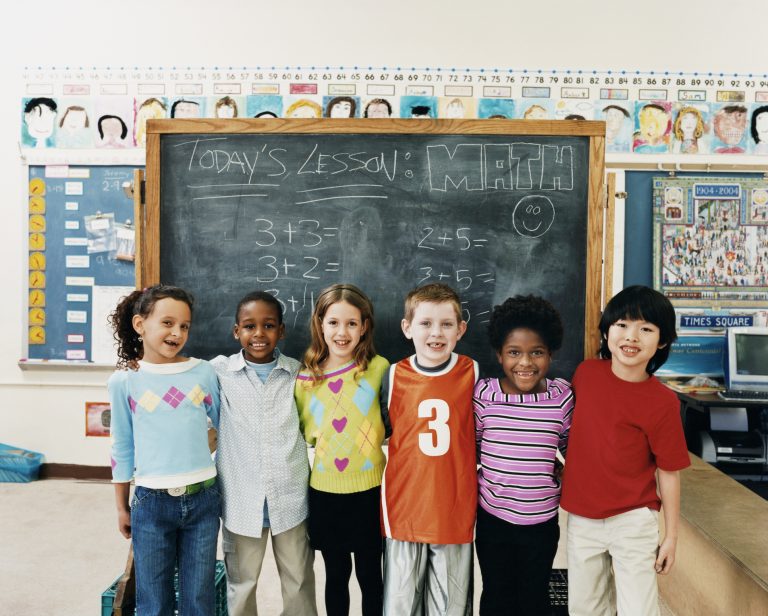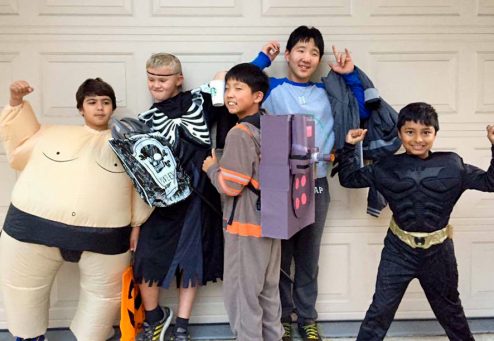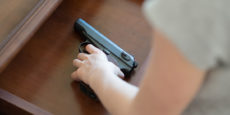
My family is Korean-American, children of immigrants. We’re what the media would call “devout, evangelical Christians.” We have a son who is disabled, non-verbal with autism and ADHD. Especially living in the middle of hyper-excellent Silicon Valley, we’re well-acquainted with feeling like “an outsider.”
This is my America, some of our friends, neighbors, and classmates of my children:
Chase comes from a white, American Mormon family, originally from Utah. Last month at a play date at Chase’s house, the kids watched a movie that ended up having a bad word in it. Chase’s mom shut down the movie immediately, and texted the other moms to apologize. We all texted back, confessing that our kids probably all heard that word already. No big deal.
Kaash’s family is Indian. They had us over for lunch, complete with homemade chicken tandoori and naan, freshly baked from their own tandoor oven (!) Now, we can never go back to Wonder White. We love naan because of them. We love them because of naan.
Himir’s family is also Indian. They invited us to a massive bash to celebrate Diwali, the high holy day for Hindus (regrettably, we had to decline because our older son with autism doesn’t do well with big parties.) Every Diwali evening, our neighbors spill out into the street to light sparklers. They are magnanimous, generously sharing their sparklers with this Asian American Christian boy who doesn’t say thank you. My son loves Diwali because he loves sparklers, which means I love Diwali because he loves sparklers.
Then there is Azad, our second son’s BFF/Chief Tormentor. His family is Pakistani and live a few houses down. We’ve been car pooling for three years. Azad’s family is Muslim who eat strictly Halal. Gelatin is forbidden for them, which my son finds baffling. Nevertheless, I often text Azad’s mom to get the OK on playdate snacks (Note to self: Skittles are OK. Gummy bears are not.)
Last winter break, they traveled to Mecca and didn’t return by the time school resumed. Their house sat empty for a week after school began. The media had been reporting a spike in hate crimes towards Muslims, so I panicked. Something must have happened. I called the school registrar, only to find out they’d notified the school they’d be gone an additional week. We all had a good laugh about it afterward.
Azad’s mom once gave me an eyeshadow set for Christmas, even though they don’t do Christmas (and I don’t know how to do eyeshadow on flat, Asian eyes.) Another time, she asked me how Christian churches adapt the Bible to teach our children. I gave her a set of children’s Bibles, so she could get ideas on how to modify their sacred text for hers. Alas, last weekend Azad’s family bought a house and moved down the street. His mom and I lamented the new distance between us, then laughed at ourselves for being over-sentimental. It’s only a block.
At a time when my country feels hopelessly divided, fractures that split into gaping wounds that now bleed, I draw these dear ones even closer, grateful to do life together; to love my neighbor and be loved by them.
I may not have power to change policies or the minds of great leaders, only to influence the impressionable young minds that run in and out of my home.
We have a lasting impact when we model these things for our kids:
- Seek to understand above being understood. Be quick to listen, slow to speak, and slow to anger (James 1:9), rather than quick to Tweet, quick to argue, and slow to listen. Reach across digital divides to avail ourselves to redemptive conversations face to face.
- Lead with, “Help me understand . . .” and close with, “I can appreciate that.” Agree to disagree, respectfully. Let our conversations in the middle be full of grace, seasoned with salt (Col.4:5-6).
- Major on the majors, not on the minors. Hunker down on universal, shared values. In the computations of humanity, common denominators are always greater than divisive differences.
- Strive to be winsome in our character, above winning over arguments. Empathy, compassion, and being respectful of differences enable us to like each other too much, rather than hate each other too much. And in this way, we let our light shine before others, that they may see our good deeds and glorify our Father in heaven (Matt. 5:16).
What happens in the White House can change the world, but so do the things that happen in my house.
This is my America. This is yours, too. This land was made for you and me.

“A new command I give you: Love one another. As I have loved you, so you must love one another. By this everyone will know that you are my disciples, if you love one another.” – John 13:34-35 (NIV)
Source: The Parent Cue








